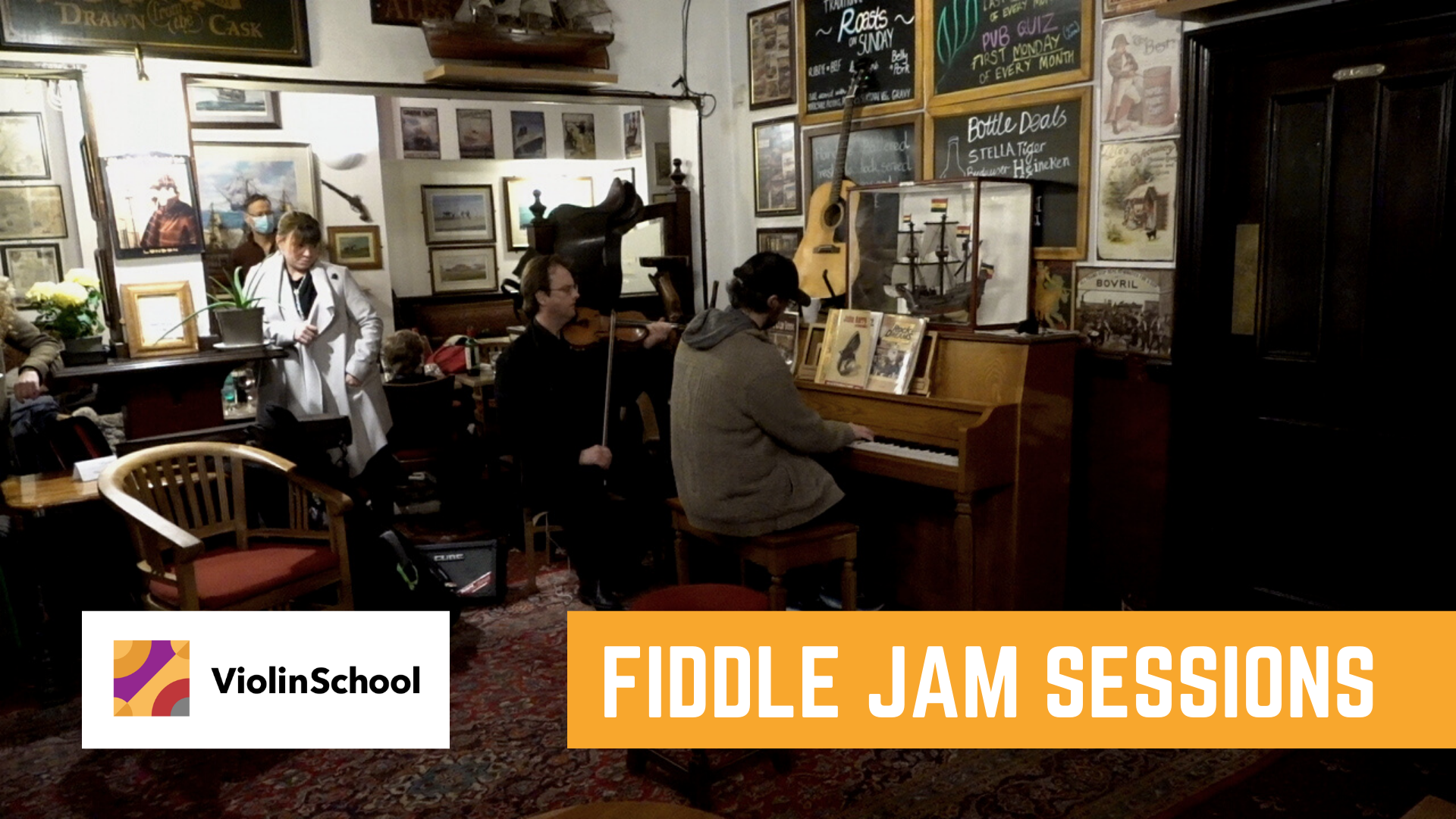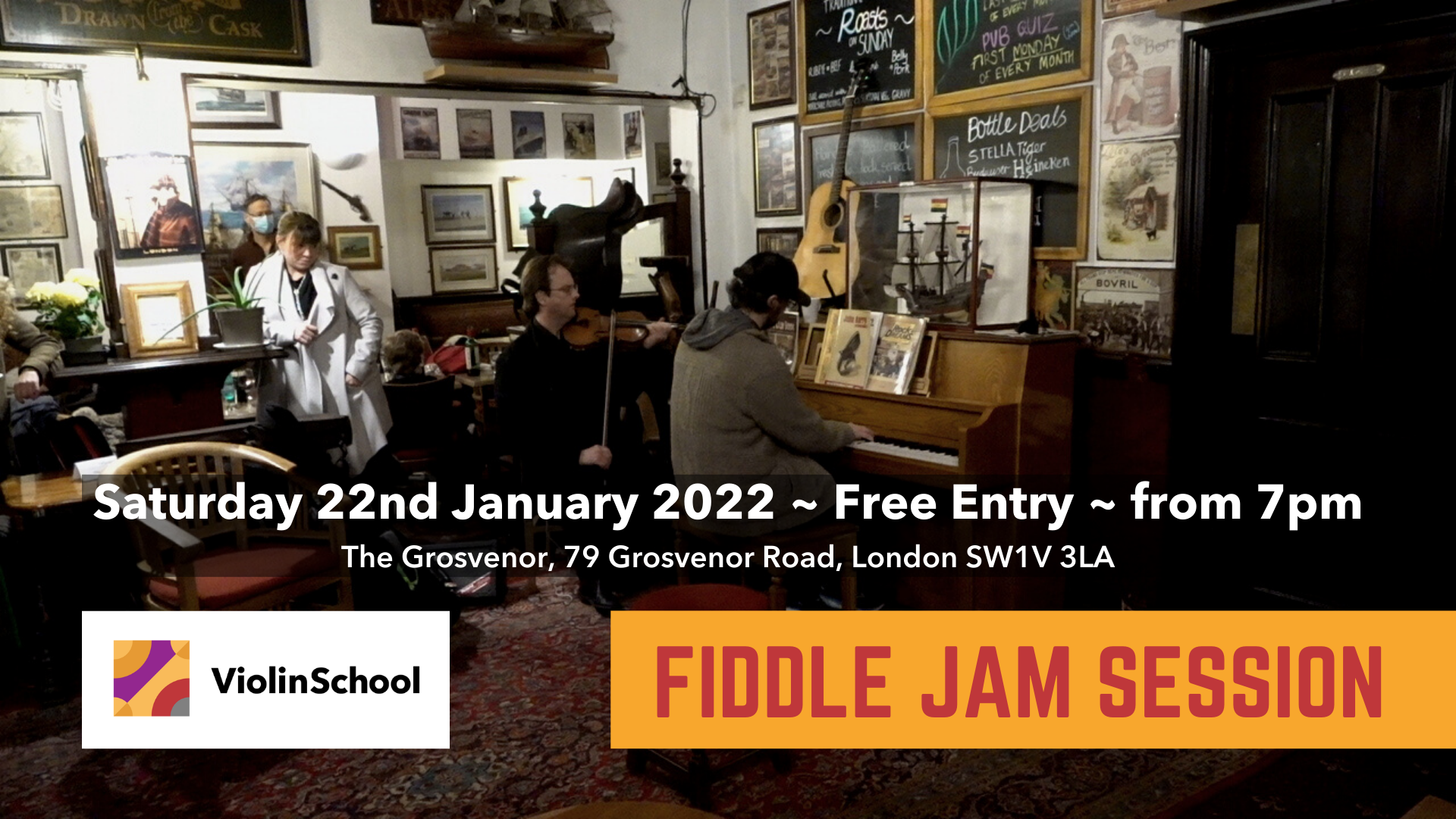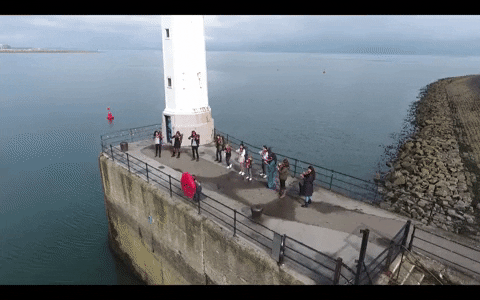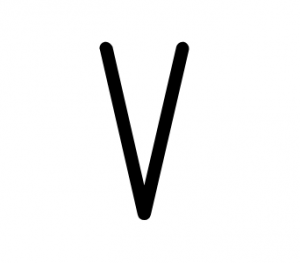Welcome to Week 6 - the second half of the New Year Term! Check back soon for links to class content.
7pm UTC - Violin Course A with Simon (90min)
Topics to be confirmed
9.30pm UTC - Violin Clinic with Simon (30min+)
No classes today
4.30pm UTC - Children's Course B Practice Session (30min)
Singing, Pitch and Finger Placements
5pm UTC - Violin Fundamentals (1hr)
Open Session - Bring Your Requests! - Bowing Activities
6pm-10pm UTC - Practice Sessions
6pm UTC Level 1 [Course A]
6.45pm UTC Level 1 [Course B]
To include: Scale Drills, G Major Pattern Building, D Major Pattern Building, A Major Pattern Building, Peasant's March, Ode to Joy
7.30pm UTC Level 2 [Course C]
8.15pm UTC Level 3 [Course D]
To include: Chromatic Scales - D, A, G - 1 Octave, Chromatics on One String, Acrobatic Chromatics, Aerobatic Chromatics, Democratic Chromatics, Poor Old Battered Broomstick, Melted Mouse and Roasted Rat
9pm UTC - Ensembles Playthrough (1hr)
Preview: The Easy Winners
Playthrough (if time): Allegro in D by Handel, Mazas Duet No.1, Marche Militaire, Chant de Veslemøy, An Elven Adventure
No classes today - Caroline's Clinc returns next week.
9am UTC - Adult Course A Instructional class (90min) with Marisol and Simon
Topics to be confirmed
10.30am UTC - Adult Course B Instructional class (90min) with Simon
Topics to be confirmed
10.30am UTC - Children's Course A Instructional class (45min) with Marisol
Topics to be confirmed
11.15am UTC - Children's Course B Instructional class (45min) with Marisol
Topics to be confirmed
12.30pm UTC - Adult Course C Instructional class (90min) with Simon and David
Topics to include: Vibrato Warmup Exercises, Vibrato, Time Signature 6/8, Rhythm Bank 19, The Irish Washerwoman, Swing Song
12.30pm UTC - *early afternoon Workshops will start after half term
2.15pm UTC - Adult Course D Instructional class (90min) with David
Topics to include: Vibrato Warmup Exercises, Dominant and Diminished Sevenths, Dominant 7ths on A, E and B, Dominant Seventh Gallop
3pm UTC - Workshop (45min) with Simon
Kreutzer Etude No.2 - N.B. this session ends at 3.45pm
4.15pm UTC - Ensembles (90min) with David and Simon
New Music: The Easy Winners
Playthrough: Allegro in D by Handel, Mazas Duet No.1, Marche Militaire, Chant de Veslemøy, An Elven Adventure
7pm UTC - Live Music Event / Jam Session - Live at the Grosvenor (45min then Jam session)
With pianist Oliver Lallemant
This week, we are delighted to welcome ...
 Oliver Lallemant is an incredible musical omnivore who can play pretty much anything on the piano! He trained as a chorister and then then an organist, and runs several of London's leading choirs ... but he's equally at home as a jazz pianist!
Oliver Lallemant is an incredible musical omnivore who can play pretty much anything on the piano! He trained as a chorister and then then an organist, and runs several of London's leading choirs ... but he's equally at home as a jazz pianist!
Olly has performed at events and parties all over the world with his jazz trio, and can even be heard twice a week serenading diners in the glorious setting of the Ritz hotel's restaurant in London.
On Saturday, Olly will treat us to a set of jazz standards on the piano, before inviting ViolinSchool violinists to join in with the jam! Let's see what happens ... 🙃
Oliver Lallement is the Director of Music at St Stephen’s Dulwich and runs several choirs, including Sloane Square Choral Society, Chelsea Chamber Choir and the Chelsea Arts Club Singers. He is a Fellow of the Royal College of Organists and a Licentiate of the Royal Schools of Music.
Oliver trained at Llandaff Cathedral as a chorister, where he sung Howard Blake’s ‘We’re Walking in the Air’ in Welsh on national television, and then later at Wells Cathedral School. He was an organ scholar at Trinity College, Cambridge (2002-5).
In the UK? Come and enjoy our new live music series in London!

Album Leaf is one of Grieg’s Lyric Pieces, a collection of 66 short piano pieces - lovely little mood-pictures. This cheeky dance is No. 7 from the first set, Op. 12
This lovely ‘Rondino’ is based on an unused tune by Beethoven, from the rejected final movement of his wind octet. Not good for Beethoven, but good enough for Kreisler!
The Halling is a traditional dance hailing from rural Norway … brisk and highly rhythmic and often ending up as an acrobatic, athletic competition between the dancers!
Beware! If you don't get the half steps and whole steps in the right place in this chromaticky piece, you might fall through the cracks!
‘Wiegenlied: Guten Abend, gute Nacht’, Op. 49, is a bit of a mouthful, so let’s just call it ‘Brahms’ Lullaby’! Lull yourself to sleep with this beauty!
James Hook was an English composer and organist who lived in the late 1700s. This vivacious duet is an exclusive arrangement of one of his keyboard sonatinas.
Ludwig van Beethoven wrote the uplifting 'Ode to Joy' melody as the main theme for the final, majestic movement of his 9th Symphony, for full choir and orchestra.
Welcome to Week 5 of the New Year Term! Check back from Tuesday for links to class content.
This is the final week before half term (Please note: there are no live classes between 13th and 22nd January).
7pm UTC - Violin Course A with Simon (90min)
Remaining Course A content up to Module A7
9.30pm UTC - Violin Clinic with Simon (30min+)
4pm UTC - Violin Clinic with Marisol
7pm UTC - Violin Fundamentals 1 with Simon
Posture, How to Hold the Violin and Bow
8pm UTC - Violin Fundamentals 2 with Simon
Bow Hold and Bowing Techniques
4.30pm UTC - Children's Course B Practice Session (30min)
Singing, Pitch and Finger Placements
5pm UTC - Violin Fundamentals (1hr)
Session 1/2 combined - Bow Hold and Bowing Techniques
Sorry the Level 1 (A & B) practice session is cancelled today because of a scheduling issue. You are very welcome to come at 5pm instead for Fundamentals, or to Caroline's clinic Friday 2pm UTC. Thank you for your understanding.
6pm UTC - Level 1 [Course A & B] Practice Session (80min)
G major, D major, A major, Finger Placements, Technical topics to be confirmed, Repertoire
7.30pm 7.45pm UTC - Level 2 [Course C & D] Practice Session (80min)
G Harmonic Minor, D Harmonic Minor, A Harmonic Minor, Bb Major, The Bureau of Bb Major, Repertoire
9pm UTC - Ensembles Playthrough (1hr)
Playthrough: Allegro in D by Handel
If time: Mazas Duet No.1, Marche Militaire, Chant de Veslemøy, An Elven Adventure
2pm UTC - Violin Clinic with Caroline
9am UTC - Adult Course A Instructional class (90min) with Marisol and Simon
Remaining Course A content up to Module A7, How to Practise
10.30am UTC - Adult Course B Instructional class (90min) with Simon
String Crossings, The Up Beat, Dotted Crotchet / Quarter Note, Scales, Peasant's March, Ode to Joy
10.30am UTC - Children's Course A Instructional class (45min) with Marisol
Topics to be confirmed
11.15am UTC - Children's Course B Instructional class (45min) with Marisol
Topics to be confirmed
12.30pm UTC - Adult Course C Instructional class (90min) with Simon and David
String Crossings, Smooth Crossings, Zebra Crossing, Cross Purposes, Double Crossed, Poor Old Battered Broomstick, The Irish Washerwoman (C), To The Greenwood, Cradle Song
12.30pm UTC - *early afternoon Workshops will start after half term
2.15pm UTC - Adult Course D Instructional class (90min) with David
Positions, Shifting, 1 Octave C, G and D major Scales in 3rd Position, Make Shift, Shifting Sands, Shifting Ground, Twiddles in 3rd Position, Mattachins in 3rd Position, Fiddler on the Loose
3pm UTC - Workshop: Get Your Scale Practice DONE! (60min) with Simon
Scales, scales and more scales! We'll work through the scales list in order ... 🙂
4.15pm UTC - Ensembles (90min) with David and Simon
Runthrough all repertoire from first half of term:
Galop by Carl Bohm, Marche Militaire, Chant de Veslemøy, An Elven Adventure
7pm UTC - Live Music Event / Jam Session - Live at the Grosvenor* (45min)
Short Jam session with guitar - until 7.45pm. With Simon and Marisol
*We will introduce new workshops and events gradually over the next few weeks
In the UK? Come and enjoy our new live music series in London!

This exercise moves between different major and minor arpeggio patterns.
It will help to make your string crossings smooth and well-coordinated, and to increase the accuracy of your finger placements when playing accidentals.
First, we're going to play the pattern slowly, starting on G.
Try to use a consistent amount of bow for each 3-note stroke. If it's hard to get your fingers and bow coordinated straight away, try it separate bows first.
Remember to anticipate the string crossings, by thinking ahead and planning your arm movement in advance. This will prevent any unwanted, sudden movements, which might destabilise your bow control.
Once you have played through the whole exercise starting on G try it starting on A and B as well. Once you are playing each note in time and in tune, and your bowing is efficient and effective, then try speeding the exercise up to a higher tempo.
Welcome to Week 4 of the New Year Term! Check back from Tuesday for links to class content.
Tuesday 1st February
Wednesday 2nd February
Thursday 3rd February
Friday 4th February
Saturday 5th February - Live from London
*We will introduce new workshops and events gradually over the next few weeks
In the UK? Come and enjoy our new live music series in London!

This is Week 3 of the New Year Term! We introduce the first new Saturday options this week, for violinists who have completed Course D already.
Tuesday 25th January
Wednesday 26th January
Thursday 27th January
Friday 28th January
Saturday 29th January - Live from London
| Double Stopping |
| Activities: |
| Doubling Up and Doubling Down |
| At the Double |
*We will introduce new workshops and events gradually over the next few weeks
In the UK? Come and enjoy our new live music series in London!

This is Week 2 of the New Year Term! Our new Tuesday Course A starts this week, at 7pm UTC.
Tuesday 18th January
Wednesday 19th January
Thursday 20th January
Friday 21st January
Saturday 22nd January - Live from London
*We will introduce new workshops and events gradually over the next few weeks, as we wait for venue access and other issues to be resolved. Please bear with us!
In the UK? Come and enjoy our new live music series in London:

Term begins this week (10th January). We have additional Fundamentals classes taking place this week, including How to Get Started and How to Tune on Monday, Violin Fundamentals 1 and 2 on Wednesday.
Monday 10th January
Tuesday 11th January
Wednesday 12th January
Thursday 13th January
Friday 14th January
Saturday 15th January - Live from London
*We will introduce new workshops and events gradually over the next few weeks, as we wait for venue access and other issues to be resolved. Please bear with us!
 The best way to get a sense for all the different things that happen at ViolinSchool is just to jump in and take part!
The best way to get a sense for all the different things that happen at ViolinSchool is just to jump in and take part!
Therefore, we're delighted to introduce a new 1-Month Trial Pass for violinists new to ViolinSchool.
Join us for a month, and come along to whichever classes and events you'd like to! (We always recommend starting with the Fundamentals if you're unsure).
This will quickly give you a sense of which level is right for you, and how the classes and your violin practice can fit in to your life and your schedule.
We'll help and advise you so that you're clear about the best place to start for your experience level!
If you'd like to dive in and try all that ViolinSchool has to offer, then sign up today for your 1 month pass - currently half price until 17th January!
Buy now: 1-Month Trial Pass for New Learners
|
|
If you'd like to dive in and try all that ViolinSchool has to offer, then sign up today for your 1 month pass - currently half price until 17th January!
Buy now: 1-Month Trial Pass for New Learners
Tem begins next week (10th January), and all of this week we're running Pre-Term check-ins, plus some Fundamentals sessions for first-time learners. Come and join us!
Wednesday 5th January
4pm UTC How to Get Started with the Violin with Marisol (60min)
5pm UTC How to Tune the Violin with Marisol & Simon (45min)
Thursday 6th January
4pm UTC Violin Fundamentals 1 with Simon (1hr)
5pm UTC Violin Fundamentals 2 with Simon (1hr)
Saturday 8th January - Live from London
9am UTC Violin Fundamentals for Children with Marisol & Simon (drop-in session)
11am UTC Violin Fundamentals for Adults with Simon & Marisol (2hrs)
What a year 2021 has been!
But wherever you are and whatever you're doing today, please allow us a moment to wish you ...
A 2022 that's full of music.
Whatever else 2022 brings (and it's going to be quite a ride...), may it bring you the infinite joy and solace that melody, harmony and rhythm never fail to deliver!
Here are a few of the adventures we got up to in 2021 ...
... will you be joining us in 2022?
Stay tuned for our biggest ever program of training, events, and random acts of creativity.
Rolling out during January and February 2022 to a screen or a city near you ... Watch this space! 🙂
Photo Credits: Eileen Pfeiffer Flores, Arch White/Alamy Live News, David Johnston, Channel 4 News, Aliz Radek-Mills, Gloucester Academy of Music, Rachel Rabe, ViolinSchool
WHILE-U-WAIT ... let's see that Domini Wellerman Lighthouse Dance again ...

Hello everyone!
We're trying something new this week, in preparation for some big changes that you'll see coming to ViolinSchool in the New Year.
A useful analogy for good Violin Practice is the Practice Menu! If this idea is new to you, then here's a 3-page summary that explains the importance of good planning in your violin practice:
If you'd like a hi res PDF copy of this summary, then email us at [email protected] and we'll send a copy straight over to you!
The German pianist and composer, Carl Bohm, really knew how to write a good tune! This is a fine example of a Sarabande — a slow, stately dance with 3 beats in a bar.
Take a listen here:
This is the second of two pieces that will feature in Week 1 of this term's Ensembles sessions. The Ensembles take place as part of our 'ViolinHub', every Saturday during the 2021 Autumn (Fall) Term.
Build up your repertoire and your performance experience whilst having fun playing music with other violinists!
Join David Worswick and Simon Hewitt Jones of ViolinSchool for this term's program of wonderful new repertoire for intermediate and advanced players, every Saturday.
Find out more about ViolinHub here:
ViolinHub (live Zoom sessions)
Do you ever find yourself landing on the wrong string, or hitting other strings whilst playing? Do you find that your stream crossings are not consistently smooth?
These could be signs that your bow arm is not consistently at the right level. Instead, your bow arm could be too high, or it could be too low.
How high or low the arm is, especially the upper arm, will affect how you deploy the weight of the arm into the string via the bow. This in turn will affect the sound quality.
It will be easier to find the right arm level - and to make a nice sound! – if you build a strong physical memory of where the arm needs to be positioned. and play each string cleanly ... without hitting the other strings.
Here’s an exercise that will help you to build up this memory quickly:
1. Raise your violin into playing position
2. Close your eyes
3. Decide on a 'target' string - i.e. which string you are going to play
4. Bring the bow to the violin, place the hair on the string, and focus intently on how your upper arm position feels
5. Move the bow (play!)
6. If you are playing the correct string, celebrate! Then do it again to repeat and consolidate the motion
7. If you are not playing the correct string, remember how your upper arm felt, and tell yourself whether it is too high or too low. (For example, if you were trying to play a D string and you touched the A string, then your arm is too low. If you touched the G string, your arm is too high)
8. Take your arm away from the violin completely, then try again. When you try again, be sure to think ahead and pre-plan the arm movement, as if you were 'correcting' the movement in advance of makig a mistake! For example, think back to the last time you did the action, then tell yourself your upper arm needs to be higher or lower than it was the previous time.
If the consistency of your bow arm is a technical priority for you right now, try practicing the exercise above for a couple of minutes each time you practice, for at least a few practice sessions.
After a few days or weeks, you are likely to see an improvement in consistency in your bow arm! If not, let us know ([email protected]) and we will help you to diagnose the issue.
For the best results, you may need to allow several weeks for your muscle memory to become strongly consolidated.
This is a simple idea, but it really really works.
If you're practising a piece of music but you're not sure how to make it better, then just ask yourself these questions:
The reason this works so well is that the absolute most crucial elements of the music - timing, frequency and sound, are prioritised.
And when working on these elements, there's usually more you can do to refine your interpretation.
Most techical 'improvements' that you make whe playing the violin can more often than not be traced back to the precision and fine calibration of these elements.
So take the time to listen - really listen! - to what you are hearing when you play through (or video record) yourself, and adjust what you are doing accordingly.
Click here to download and print the Repertoire Practice Questions!
Here's a new lesson that we've just added to Course B, to help you develop your bow division using and A major scale pattern:
You can also find a library version of the piece, complete with backing track and piano accompaniment, here:
Click here to have a listen!
If you're just starting to read music for the first time, you might come across these symbols which are especially for string instruments...
This is called a down-bow ...

... and this is called an up-bow:

Here's a newly updated lesson from our Starter / Musical Fundamentals courses, which explains everything you need to know:
Here's a short welcome message from our director Simon Hewitt Jones, for learners joining us for the upcoming Autumn Term, starting 20th September!
Not yet enrolled for the upcoming term? Click here to read more about the options available this term! Or click here to browse all of our courses.
